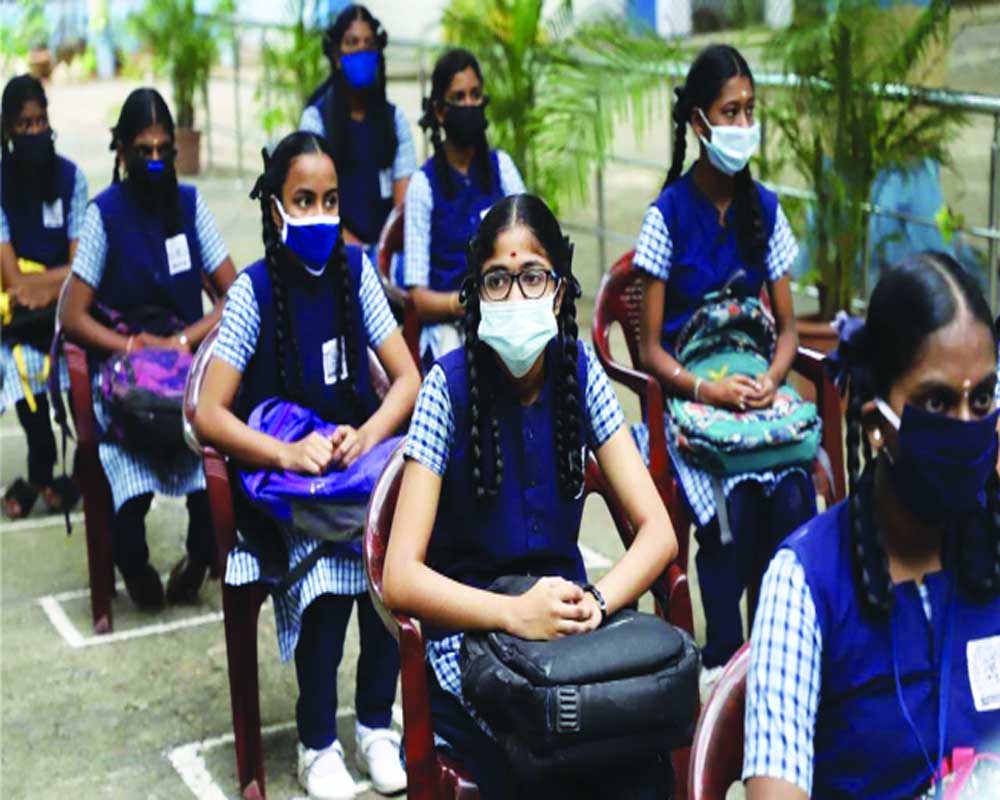NEP 2020 seeks to make India a knowledge hub but has a perfunctory approach to implementation and logistics
This is bound to be controversial, the National Education Policy (NEP) 2020, coming as it does in the middle of a pandemic, without being formally debated in Parliament or a thorough consultative process conducted with Opposition States. On the face of it, it looks to revamp the education system in India, contemporise it, make it inclusive and increase budgetary allocations to six per cent of GDP. So yes as a presentation of India as a knowledge hub, it sounds idealistic enough but in the absence of a roadmap for implementation and given the control mechanisms envisaged that imply more centralisation of powers, there’s many a slip between the cup and the lip. Also, many of the recommendations are in essence similar to those that have been made by several committees in the past and while the BJP may claim it has delivered another of its manifesto promises, it has not ironed out the logistics of how the overhaul will happen on the ground or the competencies required to do so. That’s the real test of political will. Of course, the high points are many, like expanding the scope of foundational education, increasing the school-going years from 3 to 18 instead of the prevalent 6 to 14. This will bring the hitherto ignored age group of 3-6 years under the school curriculum, globally considered a crucial stage of mental development. The pre-school system covers anganwadis, so the inclusive footprint of ensuring basic education has been drawn up at least. The policy also looks at 100 per cent enrolment up to secondary schools by 2030, a more holistic and graded assessment through the school years rather than pivoting everything on the make-or-break 10+2 Board exams, changing the marking system to ease pressure and allowing mother tongues as the medium of instruction to dilute language barriers. Significantly, it has also broken down the compartmentalised format of arts and science streams, allowing students to bundle subject combinations of their choice in senior school. At the higher education level, the policy has gone for a four-year undergraduate course, allowed greater flexibility of subject choices and created a Digi-locker, which would enable students to pile up credits and drop out to resume their programme without having to take fresh admissions. This format is already prevalent in many foreign universities and is more aligned to the US model, which allows multi-disciplinary majors and minors. Deriving inspiration, the Government has proposed, like the SAT, entrance examinations for admissions to universities by the National Testing Agency (NTA), though this will be optional. Foreign universities will be allowed, which means there will be a cross-flow of world-class faculty and student exchange. But a huge plus is a dedicated National Research Foundation to prioritise R&D, though funding for it has progressively been falling and it needs bigger allocation.
So what are the question marks? One is, of course, the informalisation of the education system as a whole. While internships for Class VI students and marking systems that encourage critical thinking and application-based tests sound all too good, everybody forgets that these have to be based on sound fundamentals. In this case, the quality of teaching and its uniformity across Government schools. So teachers’ re-training is as much important. Also, the very idea of peer reviews, where students get to evaluate each other, or a feedback system of assessment depends on how evolved your understanding is. A subjective approach may not always do justice to individual talent. There’s a risk of dumbing down protocols. The NEP focusses on creating at least one large multidisciplinary institution in or near every district by 2030 but this involves operational practicalities like the ability to attract skilled teachers and the local demand and quality of students. The latter would clearly have to be brought up to speed and that would mean strengthening school education at the local level. But the biggest problem lies with replacing the University Grants Commission (UGC) with a new regulatory board, ostensibly to streamline functioning and ensure meritocracy but definitely aimed at chipping into the autonomy of premier universities. The Delhi University Teachers’ Association (DUTA) has already protested against the NEP, saying it will “dismember” universities by transferring the power over to a board of governors and affect funding decisions, which will be made by the Ministry directly. As it is, the absolutism of the UGC has had many casualties. Vice-Chancellors have had to be at the beck and call of an official for routine fund clearances, leave aside seeking one for innovations or additions. A performance-linked funding pattern that would encourage competitive scholarship was never considered. And even if we do that now, how much of that would be free of bias is the question. Elite institutions need to be kept autonomous. Most important though is filling up teaching vacancies in Central universities, 50 per cent posts going empty in some. But the Government has managed to keep the RSS at bay, conceding only to renaming the HRD Ministry as Ministry of Education and incorporating Indic elements in courses, albeit with a caveat that they have to be “scientific and accurate.” And it has stayed away from imposing Hindi as a third language. It is more centralisation than saffronisation.


























